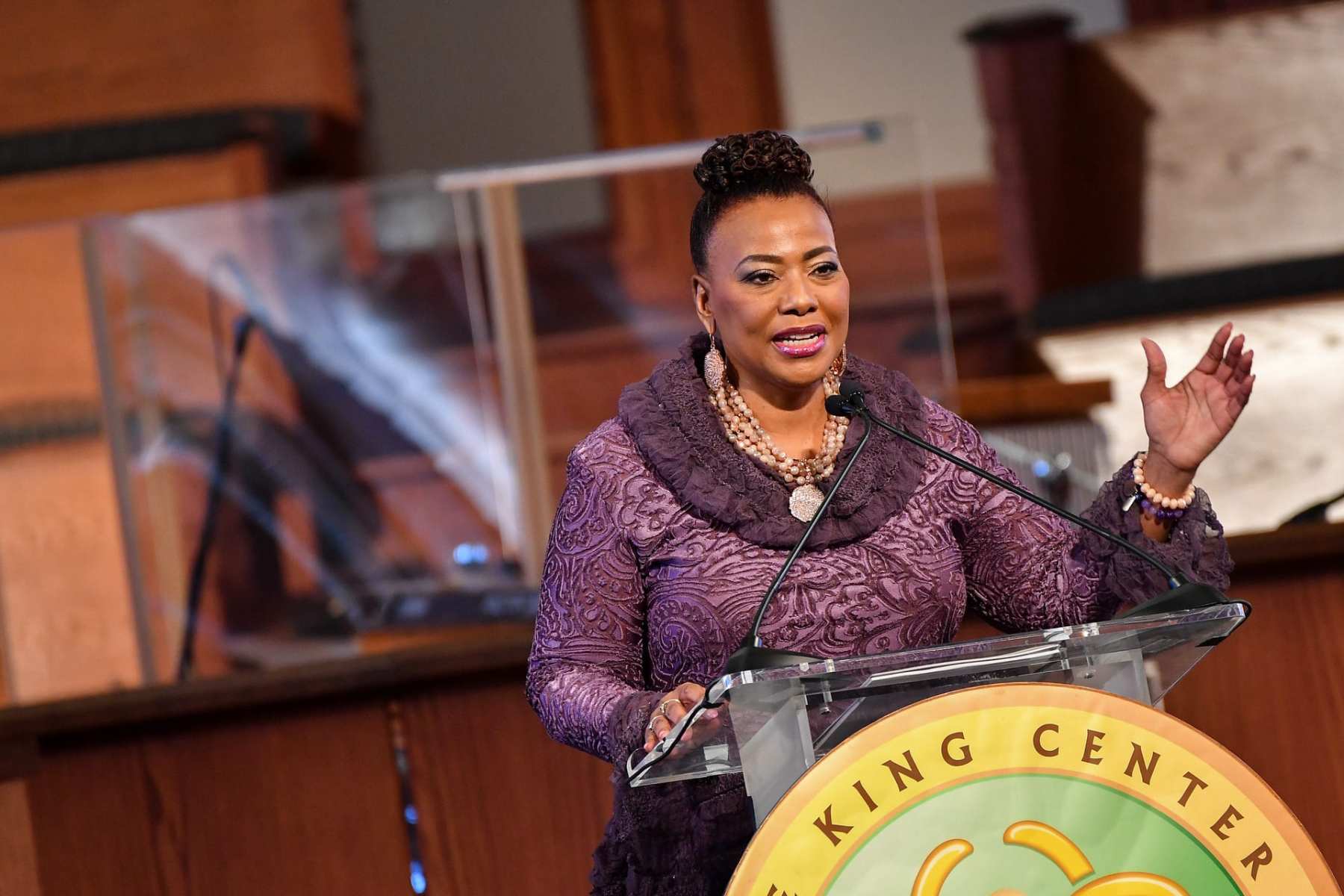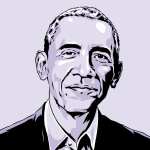Earlier this month, the nation marked what would have been the Rev. Martin Luther King Jr.’s 92nd birthday. His youngest daughter, Bernice, serves as president and CEO of the King Center, the organization founded by her mother, Coretta Scott King, who was the chief steward of her husband’s legacy and champion of the federal holiday that now honors him.
Bernice King spoke to The 19th’s editor at large, Errin Haines, ahead of a new King Center initiative launching next month that will work to implement national policies and practices aimed at addressing hate, violence and systemic inequality.
This interview has been edited for length and clarity.
______
Errin Haines: Let me start by asking you: Your father is somebody who met with presidents and agitated for change in the Oval Office. How do you see your role as it pertains to the incoming administration?
Bernice King: I see my role as coming alongside some other leaders who are working on different agendas related to the Black community and marginalized people — particularly on on the issue of poverty, because I’m extremely concerned about poverty, and now even more so with the pandemic. But I’m also looking forward to possibly working with our vice president on some efforts that she’s going to be doing. I did have a brief conversation with her just before the inauguration.
I tend to work a lot under the radar. Maybe there’ll be a day when I emerge more in the forefront. But I look forward to being a strong advocate for certain policy changes. I always try to think about the pulse of the nation, meaning, what does the nation have the capacity to do? Sometimes we’re not ready for certain things; timing is everything. The question is, do we have the capacity for certain things to take place?
I look at one of the big critical issues around social justice that we need to hone in on. We have to stop some of the bleeding in the Black community. For me, that deals with police reformation, the whole reconstruction of how we’re going to move forward with public safety. I’m hoping that the momentum that started last year will continue, that it doesn’t get tabled as this pandemic threatens to overwhelm everything. I’m going to be working on the local level, as well as state level, as well as on the national level, and looking forward to even having more of a presence — not necessarily me directly, but our institution — in the nation’s capital.
I saw some of your comments on social media in the wake of the events of January 6. I’m wondering what you think about what the insurrection says about who and where we are as a country, but also juxtaposed with the new president’s message of unity and healing as they take office? Should we be discussing unity at this point, before we discuss accountability?
I think you can do both. The Bible says, “Without a vision, the people perish.” I think you always have to keep the vision before the people. Because if not, then you get consumed in one thing, consumed in retribution, you get consumed with punishment; that should never be an end in and of itself.
My father was able to lead the movement because for him, the end was the beloved community. That’s why there were certain things in the process of confronting and resisting he couldn’t do, because it would undermine the efforts to move toward the beloved community. So I think unity has to be kept before the people. But if there is no accountability — and then more importantly, after the accountability, if there is nothing put in place so that these things we can never revert back to it — then we just kind of went through a futile exercise in terms of social progress.
Sometimes things happen so swiftly and quickly, and then we get distracted by the next news item. And we forget that this was going on, and people slip under the radar. And it was just something they did for the public. OK, so we have these arrests. But did these people really have consequences? That’s what I’m concerned about.
During the insurrection, I was reminded of your father’s quote about “true peace not being merely the absence of tension, but the presence of justice.” And it feels like too many Americans are focused on the absence of tension and not the presence of justice. Is that harmful to our democracy? And what does the presence of justice look like now?
I don’t want people to believe that justice is just consequences. That’s a piece of it. But reconciliation is a part of justice. Restitution is a part of justice. Reparations are a part of justice. Reconstruction is a part of justice and equity is a part of justice. So all of that goes into it. We need to talk more about that, because justice has only been seen as “penalize the cops.” But if the system is still the same, do we really have justice?
So we can’t just focus on quieting down. That’s what my father called false, negative peace. We want positive peace, where there is justice, where there is a fair system. We’ve got to find new ways to engage people that are fair and equitable. That’s when we begin to have justice.
What do we need to do in society so that people who supported [President Donald] Trump don’t feel that they are on the fringes at this point? That’s why I can appreciate why it’s important that Biden sends a message of unity. We have to keep the vision, ultimately, of uniting America, but this is the process to getting there. These are the things that we have to fix and we have to work on. And it’s going to require some uncomfortability, it’s going to require some shifts, some adjustments, some sacrifices, some things are gonna change.
It’s not going to be power in the way that people have been accustomed to it. We’re removing those power levers in our society, and we’re creating fair and equitable circumstances. And we’re going to ensure that there is accountability and responsibility for things. That’s a lot of work. That’s a lot of messaging. So we’re going to talk more about that, and hopefully give more definition to what the real work has to be now, going forward.
You mentioned police reform as an issue that you’re going to stay on from a policy standpoint, but I want to ask about voting rights, too. In Georgia, we saw voter suppression versus voter turnout in the Senate runoff races. Is this something that you’re concerned about staying on the front burner now that we are past an election cycle? Do you worry this is something that people might forget about, the need to address voting rights in this country?
I look at a three-tiered approach: You’ve got the emergency, the intermediary and the long term. For me, police reform is the emergency. Voting rights would be part of the intermediary. And then we’ve got to look at poverty overall, what that means. We’ve got some major economic challenges that we already had. So they’ve been compounded by the pandemic.
My father said we’ve got to have a revolution of values, where people really become centered, that we really care about the well-being of people in every area.
For me, I can’t believe that we’ve politicized and even commercialized health. We talked about life, liberty, the pursuit of happiness … none of those are possible if you don’t have your health quality. We’ve got to find ways to be more creative with profit, so it doesn’t harm and hurt people. Those are the things that burden me. I’m praying everyday, “God, show me the way, I need a light bulb moment that I can just offer for consideration [to the country’s leaders].” Because it seems like we’re getting bogged down in the same old arguments time and time again, and it’s time for some disruptive thinking around these issues.
In talking about how we build back America, we’ve got to build the will to do these things. That’s what’s lacking.





